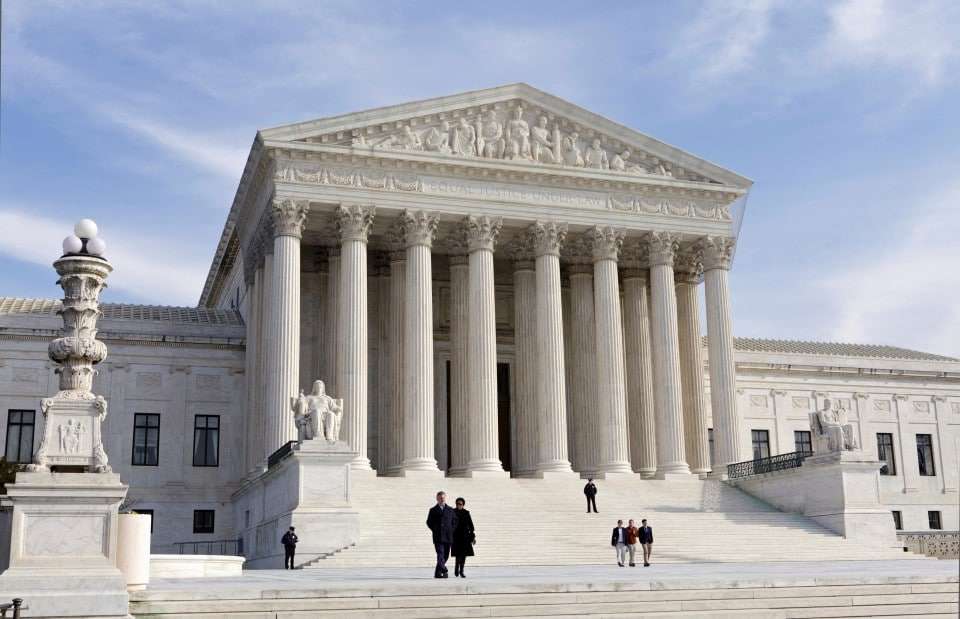The Volokh Conspiracy
Mostly law professors | Sometimes contrarian | Often libertarian | Always independent
The problem of precedent

A perennial question at the Supreme Court is how today's justices should deal with yesterday's decisions. The court has been issuing opinions for centuries, so when new justices take their seats on the bench, they have plenty of material to work with. Then again, it's all but certain that a newly appointed justice will find some decisions she disagrees with.
That's a major reason we pay such close attention to Supreme Court nominees. Of course we're interested in new cases, but we're also interested in the past: When a justice leaves the court and another arrives, what will remain settled and what will be up for grabs?
One possibility is that each new justice should reach her own conclusions without deferring to what her predecessors have done. That doesn't mean she should ignore the court's prior decisions. To the contrary, she should read those decisions and think carefully about their reasoning. But if she concludes after reflection that her predecessors got it wrong, she should vote to overrule their decision. The most important thing, the argument goes, is getting the law right.
We can also imagine a different approach. Maybe it's not always enough for a justice to read and consider the court's prior decisions. In some cases, maybe a justice should vote to uphold a decision even if she thinks it's wrong.
It might seem strange to suggest that flawed decisions should be allowed to hang around. But over the years, numerous justices have maintained that the court shouldn't correct all of its mistakes. Instead, the court should defer to precedent by keeping prior decisions on the books unless there's a good reason to get rid of them. Judging isn't just about getting the law right; it's also about leaving the law settled.
Part of the explanation has to do with people's expectations. The Supreme Court's decisions help to set the rules of the game in countless walks of life. Individuals need to know what statutes mean and how the Constitution affects what they can say and do. Businesses and other organizations do, too. If the court changes course too often, it might disrupt expectations and make it harder for people to plan their lives.
Standing by prior decisions can also help judges be more efficient with their time - and the time of those who appear before them. It would be a heavy burden for the Supreme Court to treat all of its decisions as fluid. And spending too much time on the past might prevent the justices from resolving new disputes. Viewing prior decisions as settled helps to narrow the issues that are contested in any given case, which creates benefits for judges and litigants alike.
There's something to be said for both of these explanations. And they aren't the only justifications for standing by prior decisions; others include the ever-present possibility that it's really today's justices, not their predecessors, who are mistaken about the law. But in my recent book, "Settled Versus Right," I emphasize a different reason that the justices might support some decisions they think are wrong. It revolves around the idea of impersonality. This idea has implications for every area of law, but for now I'm going to concentrate (as I do in the book) on the Supreme Court's interpretation of the Constitution.
Deferring to precedent helps to ensure that, as Justice Lewis Powell once put it, the Constitution isn't simply "what five justices say it is." Upending a prior decision takes more than getting a majority of the Supreme Court to disagree with it. It requires a special justification above and beyond the belief that the decision is misguided. By committing themselves to the court's prior decisions, today's justices underscore the idea that the court is an enduring, continuous institution.
That's why the court has described deference to precedent as crucial to the rule of law and the integrity of judicial decision-making. A shared dedication to prior decisions lets the court transcend the moment. Calendar pages turn and political winds shift, but the court is still the court, and the law is still the law.
That's the good; now for the bad. A commitment to precedent basically guarantees that the Supreme Court will uphold some mistaken interpretations of the Constitution - even though it recognizes them as mistaken and even though it has the power to set them straight. That's a huge cost, and it's why all of the justices agree that the court should overrule its prior decisions in some cases. In 1932, Justice Louis Brandeis framed the issue in terms that continue to echo today: Is it more important for the law to be settled, or to be right?
Providing an answer would be hard enough if the justices generally agreed about how the Constitution ought to be interpreted. Things become more complicated given that the justices have very different views about how to interpret the Constitution's meaning. At the same time, that disagreement makes a commitment to precedent more important, because it allows the law to remain constant even as justices come and go.
I'll talk more about the interplay between precedent and disagreement in tomorrow's post. Later in the week I'll touch on a number of related topics, including when the Supreme Court should overrule its prior decisions, when it shouldn't and why an individual justice might defer to precedent even if there's no guarantee that her successors will follow her lead.


Show Comments (0)